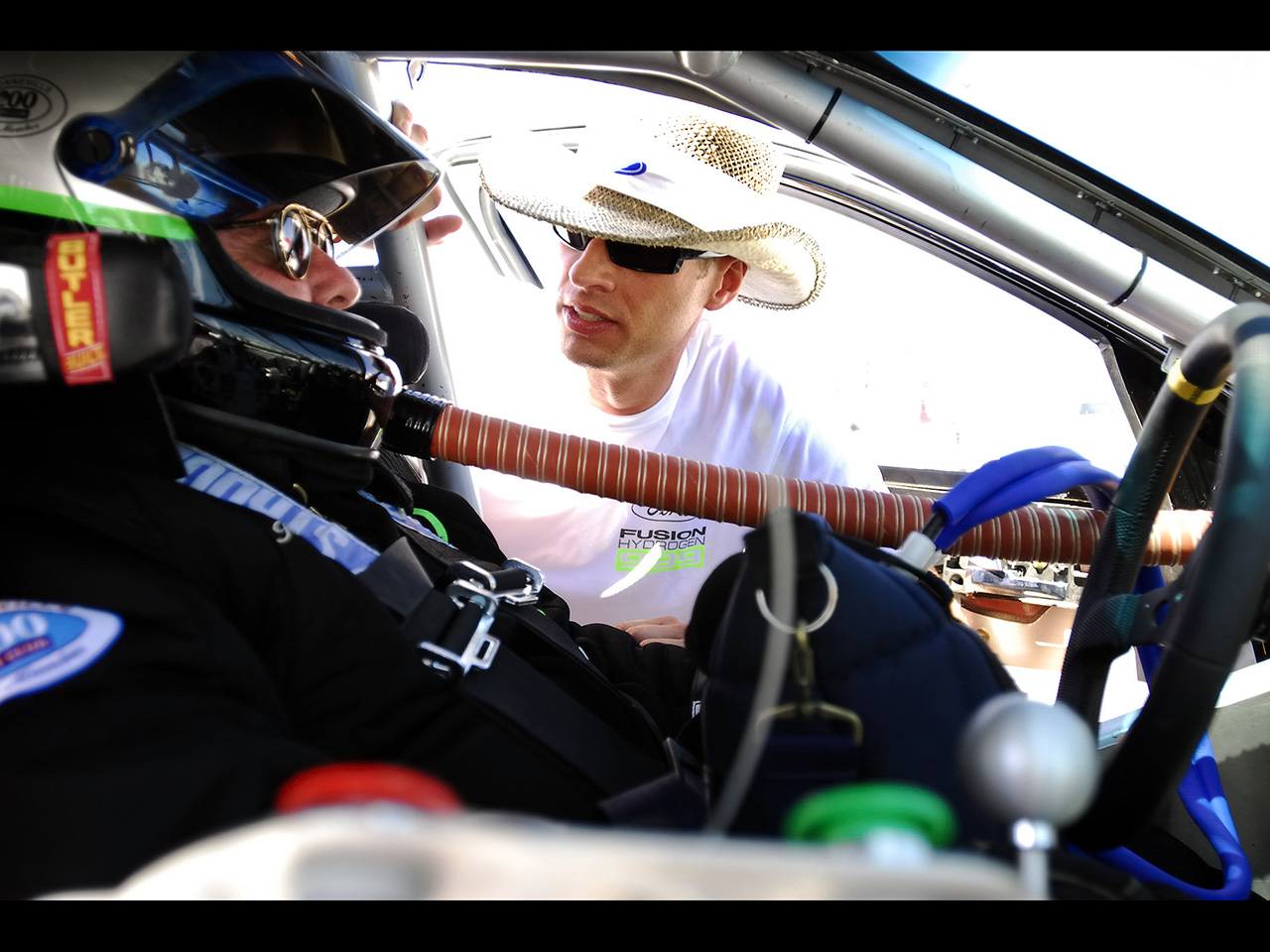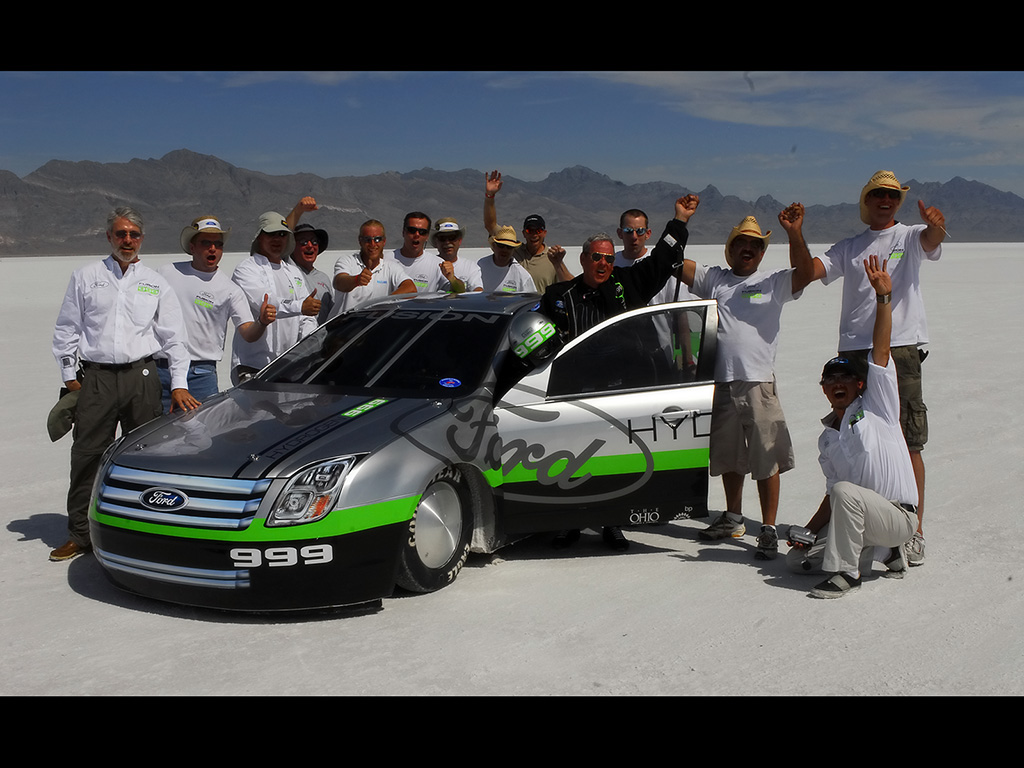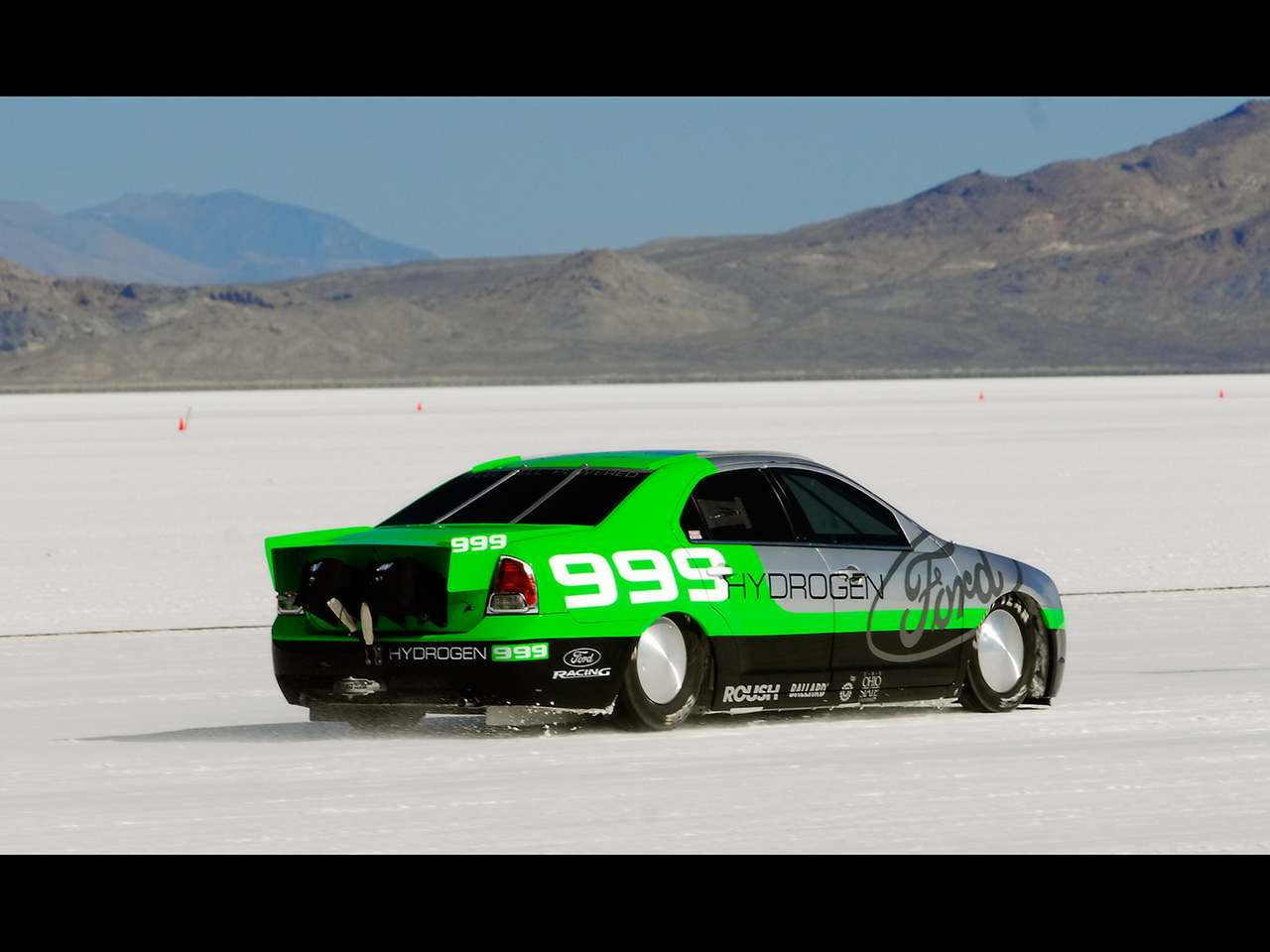2007 Ford Fusion Hydrogen 999 Speed Record
|
Price |
-- |
Production |
-- | ||
|
Engine |
-- |
Weight |
6700 lbs | ||
|
Aspiration |
-- |
Torque |
-- | ||
|
HP |
770 hp |
HP/Weight |
-- | ||
|
HP/Liter |
-- |
1/4 mile |
-- | ||
|
0-62 mph |
-- |
Top Speed |
207 mph |
(from Ford Press Release) FORD SETS LAND SPEED RECORD WITH FORD FUSION HYDROGEN 999 FUEL CELL RACECAR
Ford Motor Company made history today by reaching 207.279 mph with the Ford Fusion Hydrogen 999, the world’s first production-based hydrogen fuel cell race car.
The Ford Fusion Hydrogen 999 is Ford’s latest environmental innovation, another step on the road toward commercially viable hydrogen fuel cell vehicles.
The car was designed and built by Ford engineers in collaboration with Ohio State University, Ballard Power Systems and Roush.
WENDOVER, Utah, August
16 – Ford Motor Company [NYSE: F] today became the world’s first
automaker to set a land speed record for a production-based fuel
cell powered car. The Ford Fusion Hydrogren 999 fuel cell car raced
to 207.297 mph at the Bonneville Salt Flats in Wendover, Utah to set
the record.
The Ford "999" is the world’s first and only production
vehicle-based fuel cell race car. It was built in collaboration with
Ballard Power Systems, Roush and Ohio State University and is one of
two vehicles demonstrating the potential of fuel cell technology.
Ford researchers also are supporting student engineers from Ohio
State University on its Buckeye Bullet 2, a streamliner-type fuel
cell-powered racer attempting 300+ mph.
“What we’ve accomplished is nothing short of an industry first,”
said Gerhard Schmidt, vice president, Research & Advanced
Engineering for Ford Motor Company. “No other automaker in the world
has come close. We are excited to have accomplished something never
before done. We established this project to advance
fuel-cell-powered vehicles and to do what has never been done
before; and we did it.”
Schmidt said Ford’s historic run at Bonneville will further expand
the company's technological horizons with fuel cell-powered
vehicles, because the use of hydrogen as a fuel could someday play a
key role in meeting the energy needs of the transportation sector.
The Ford Fusion Hydrogen 999 is Ford’s latest environmental
innovation and is another step on the road toward commercially
viable hydrogen fuel cell vehicles.
The speed was reached during a run at the Bonneville Nationals,
which are being held from Aug. 10-17.
The Ford Fusion Hydrogen 999 land speed record vehicle was designed
by Ford engineers and built by Roush in Allen Park, Mich. Ford
engineers leveraged the 2004 Buckeye Bullet’s electric motor, while
Ballard Power Systems supplied the 400 kW hydrogen fuel cells. Ford
retiree Rick Byrnes, a veteran Bonneville racer, piloted the Ford
Fusion Hydrogen 999 on its record breaking run.
Ohio State students have designed their streamliner, dubbed Buckeye
Bullet 2, from the ground up. Ballard donated the hydrogen fuel
cells for Ohio State’s car, Roush its engineering services and Ford
has provided overall project coordination and expertise in fuel cell
drivetrains.
In 2004, Ohio State students set the unlimited land speed record for
an electric vehicle by running 314 mph in the first Buckeye Bullet,
dubbed BB1.
Ford Fusion Hydrogen 999 Part of a Broader Effort
The Ford Fusion Hydrogen
999 shows one of the ways Ford is advancing environmental innovation
with the goal of offering vehicles with zero impact on the
environment. Multiple technologies, including hydrogen fuel cells,
hybrids, E85 ethanol, clean diesels, bio-diesels, advanced engine
and transmission technologies allow a flexible approach that
balances customer needs, environmental impact and shareholder
interests.
Ford Motor Company currently has a fleet of 30 hydrogen-powered
Focus fuel cell vehicles on the road as part of a worldwide,
seven-city program to conduct real world testing of fuel cell
technology. The 30-car fleet has accumulated nearly 580,000 miles
since its inception in 2005.
Ford also is conducting tests with the world’s first plug-in hybrid
electric vehicle, the Ford Edge with HySeries Drive. The Ford Edge
with HySeries Drive uses a series electric drivetrain with an
onboard hydrogen fuel cell generator to give the vehicle a range of
225 miles with zero emissions.
Ford currently offers gasoline-electric hybrids including the Escape
Hybrid and Mercury Mariner Hybrid. The company will also offer
hybrid versions of the Ford Fusion and Mercury Milan in 2008.



